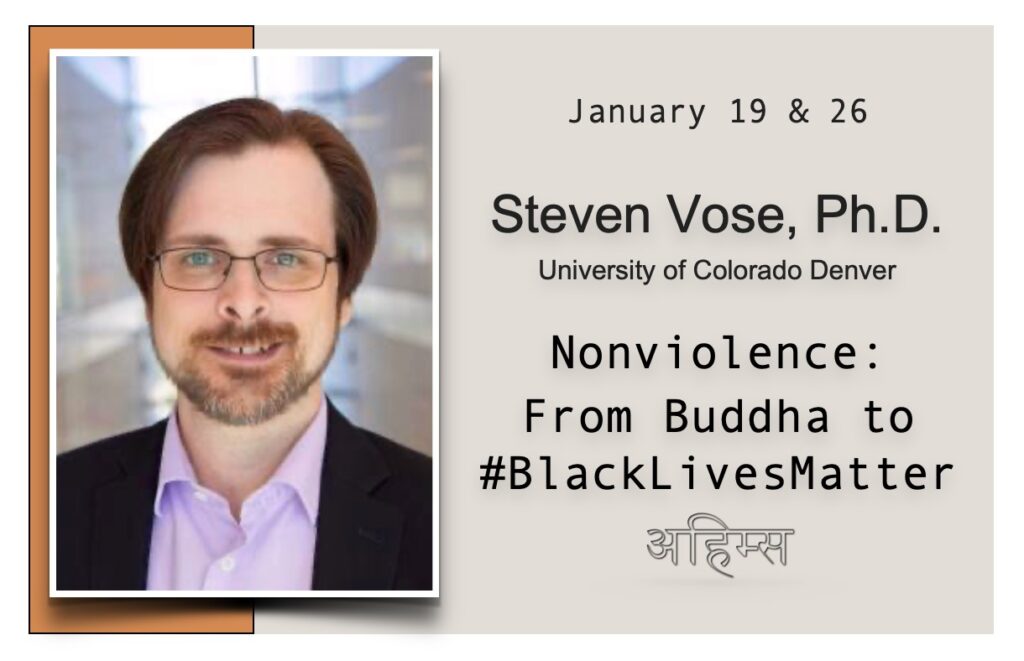From Buddha to #BlackLivesMatter: The Past and Future of Nonviolence
January 19 & 26, 2025

Class Description
January 19: Nonviolence and Salvation in the Religious Traditions of India: The Roots of Ahimsa
The idea of ahimsa, non-harm or non-violence, is a concept common to many of the religious traditions originating in ancient India. This lecture will discuss the religious ideas and goals that made ahimsa a central means for attaining salvation in three Indian traditions—Hinduism, Buddhism, and Jainism—focusing specifically on the idea of ascetic self-cultivation. We will then briefly compare the ascetic precepts of nonviolence to Christian pacifist traditions, focusing on Tolstoy and the Quakers, to understand the similarities and differences between and among these traditions.
January 26: From Gandhi and MLK to #BlackLivesMatter and the Campus Campaigns for a Free Palestine: Ahimsa in Action in the Modern World
How did Mahatma Gandhi and Martin Luther King adapt the religious precepts of nonviolence into a strategy for political action? This lecture will explore the ideas and traditions Gandhi drew upon for his campaign of satyagraha (“soul force”) to decolonize India. It will then examine how MLK adapted Gandhi’s ideas to his own campaigns, focusing on his understanding of agapē. We will examine what each imagined the ideal qualities of a nonviolent actor are and what it would take to succeed in a nonviolent campaign. We will then look at some of the key differences between Gandhi and King that made nonviolence a different kind of strategy for each. Examining two recent examples of nonviolent actions, the #BlackLivesMatter Protests of 2020 and the 2024 encampments on many college campuses to end the violence in Gaza, we will conclude by questioning how effective nonviolent campaigns are today, and what some of the new challenges are for such efforts.
About Steven Vose
Steven M. Vose (PhD, South Asia Studies, University of Pennsylvania) is an Assistant Professor in the Department of History at the University of Colorado-Denver, where he holds the Bhagwan Suparshvanatha Endowed Professorship in Jain Studies. A historian of Jain and other religious communities in South Asia, his teaching and research focus on the nexus of religion and politics. His first book, Reimagining Jainism in Islamic India: Jain Intellectual Culture in the Delhi Sultanate (Routledge, forthcoming), won the Edward C. Dimock, Jr. Book Prize in the Indian Humanities from the American Institute of Indian Studies.